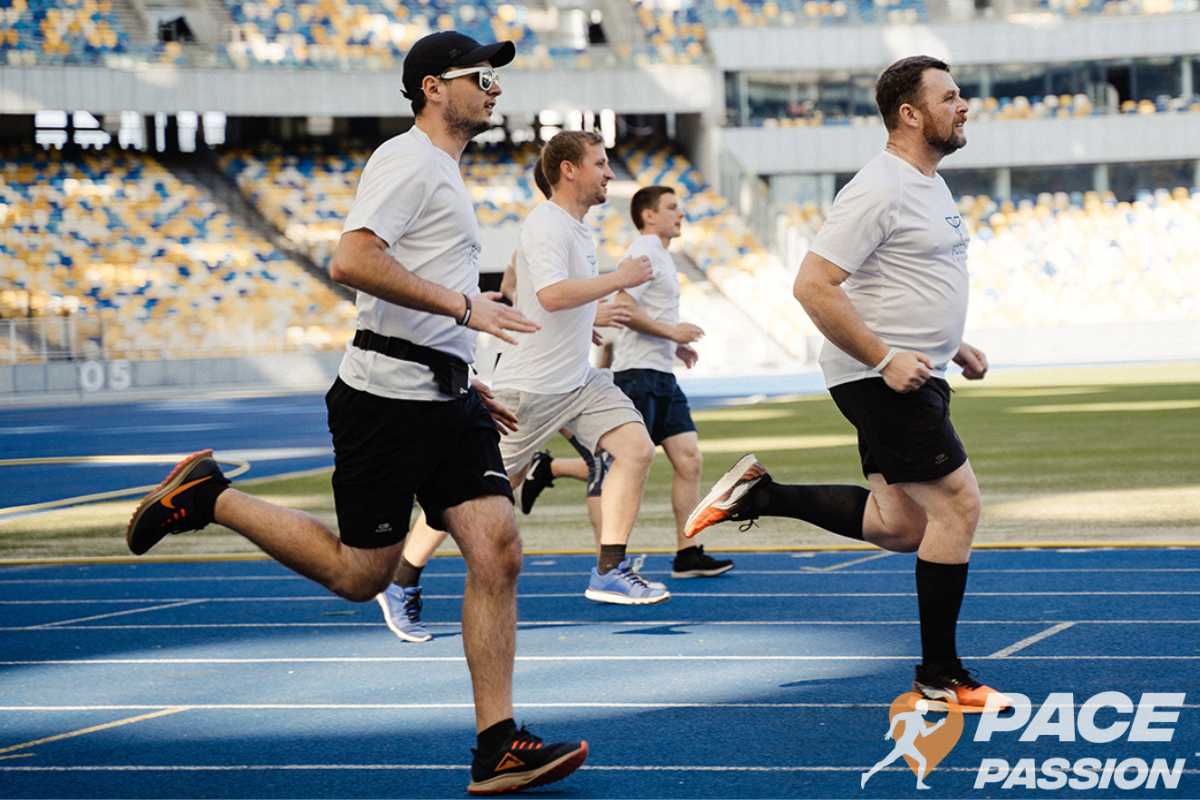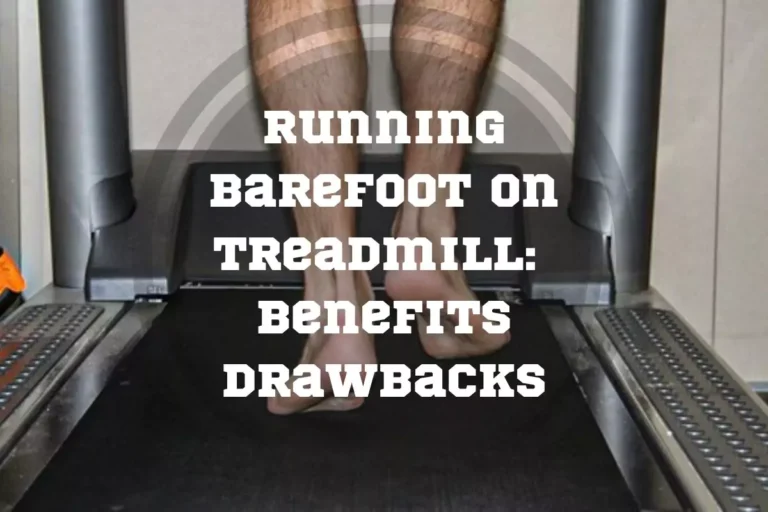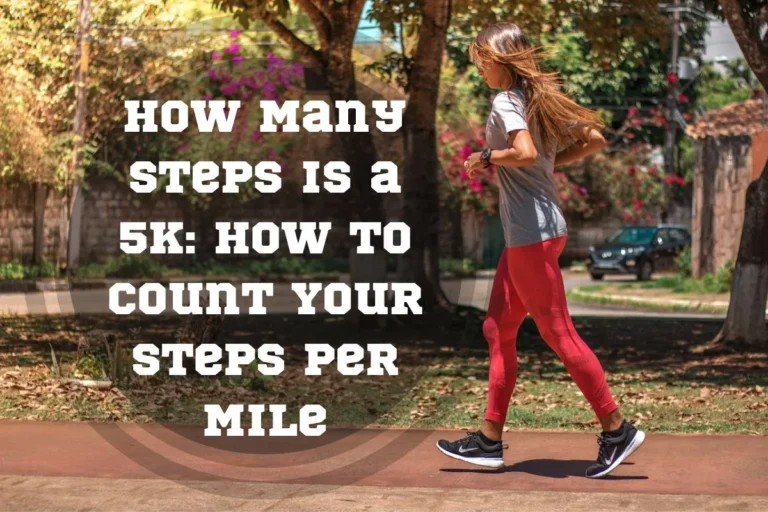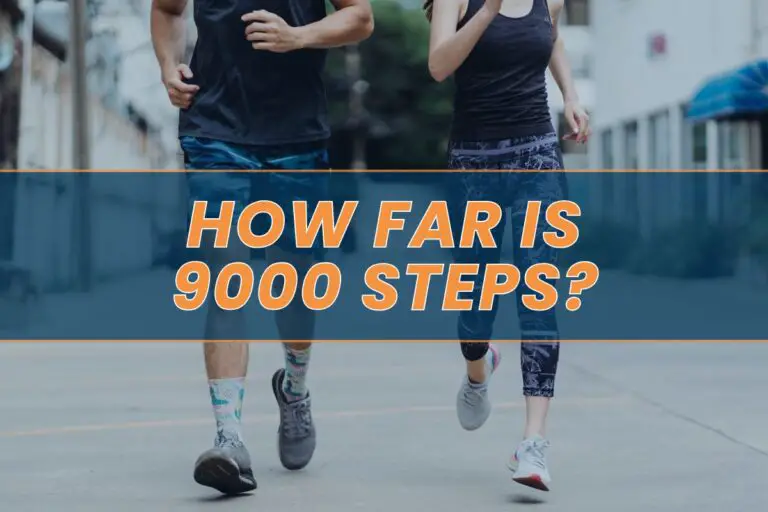How Long Is a 6K Run and How to Improve Your Results
Are you thinking of taking up running, but are unsure How long is a 6k run and how to make it a part of your running routine?
Ever wondered what’s the average time for a 6k run, or how many miles is a 6k? In this blog post, we walk you through all the details about what makes up a 6km race and give you tips on how to best prepare and train for your event.
Read on to find out more about improving your performance and hitting this milestone!
Is A 6k Run A Hard Distance?
How long is a 6k run? A 6K race covers 3.7 miles, or between 5400-6500 steps. This distance is suitable for all levels of runners, as it can be both challenging and achievable. An average time for a 6K run is between 35-45 minutes for men and 45-55 for women.
What Is a 6k Run?
This distance requires some amount of physical fitness. It is best suited to those with an intermediate level of experience, or beginners with good general health.

Generally speaking, experienced runners find that running 6km is not overly difficult, as long as they’ve taken the time to build up endurance and stamina. However, if you are new to exercise or just starting out with running, then it may take more preparation to build your fitness base.
Average Number of Steps in 6 Km Run
How far is a 6k run in steps? When it comes to tracking the number of steps needed for a 6 km run, there are a few factors that come into play, such as gender, stride length, and pace.
Here’s a table showing the average number of steps, based on gender and experience level:
| Experience level | Men (slow jog) | Men (moderate pace) | Men (fast run) | Women (slow jog) | Women (moderate pace) | Women (fast run) |
|---|---|---|---|---|---|---|
| Beginner | 1250 | 1050 | 950 | 1300 | 1100 | 1020 |
| Intermediate | 1150 | 1000 | 930 | 1200 | 1080 | 980 |
| Advanced | 1100 | 950 | 900 | 1150 | 1050 | 950 |
How Long Is a 6k Run in Miles?
How many miles is a 6k race? A 6K run is an important distance for runners, as it can be used to measure progress over time and compare performance. A 6K run covers a total of 3.73 miles, so it’s significantly shorter than a 10K (roughly 6.21 miles) or half marathon (13.1 miles).
This is often the longest distance in primary school and community running events, making it accessible for beginner level runners and athletes of all ages to compete in without committing themselves to longer distances.

How Long Does a 6km Run Last?
Are you wondering how much is a 6k run? On average, it takes experienced runners about 30 minutes to complete a 6km run, although times can vary depending on an individual’s speed and fitness level. Good times for a 6km run depend on many factors, such as how fit the runner is and their experience level.

Pro Tip:
On average, it takes around 30-40 minutes to complete a 6K race. Beginners take between 35-55 minutes, while more experienced runners aim for 30 minutes or less.

Pro Tip:
On average, it takes around 30-40 minutes to complete a 6K race. Beginners take between 35-55 minutes, while more experienced runners aim for 30 minutes or less.
The average time for men is 35 minutes and the average time for women is somewhere between 38 and 40 minutes, depending on age and experience level.
Calculator Of Running Time
This running time calculator is based on a calculation formula that takes into account the distance, gender, level of training and age of the runner. We suggest you estimate the approximate amount of time you will be able to cover the desired distance using the calculator below.
Running Time Calculator
Result:
average 6km run time by age
Now let’s discuss the average 6km run time by age and experience level for men and women:
What Is the Average Time for a 6K for Beginners?
The average time for a beginner to complete a 6km run can range between 35-55 minutes.
| Age | Men | Women |
|---|---|---|
| 20-30 | 35-36 min | 44-45 min |
| 30-40 | 36-38 min | 45-46 min |
| 40-50 | 39-40 min | 46-48 min |
| 50-60 | 42-44 min | 48-50 min |
| 60-70 | 44-46 min | 50-52 min |
| 70+ | 50+ min | 54+ min |
What Is the Average 6 K Time for Experienced Runners?
Generally, a good 6K time for advanced runners is between 24 and 36 minutes, with their speed ranging from 4 to 7 minutes per mile, or 2.5 to 4 minutes per kilometer.
| Age | Men | Women |
|---|---|---|
| 20-30 | 24-25 min | 27-28 min |
| 30-40 | 25-26 min | 28-29 min |
| 40-50 | 27-28 min | 29-30 min |
| 50-60 | 28-30 min | 31-32 min |
| 60-70 | 30-32 min | 33-34 min |
| 70+ | 33+ min | 36+ min |
3 Benefits of Running 6K For Health
Regularly running 6km can improve your cardiovascular health, increase your endurance and stamina, and help you maintain or lose weight.
1. Improved Cardiovascular Health
Running 6 km offers a host of benefits for cardiovascular health. For starters, running at an easy to moderate intensity level has been linked with vastly improved fitness levels and reduced risk of death from all causes and cardiovascular disease in particular.
This is because running increases your heart rate, which strengthens the heart and boosts circulation throughout the body. Running can also help reduce blood pressure by dilating the arteries, veins, and capillaries that supply nutrient-rich, oxygenated blood to the cells during exercise.
2. Increased Endurance and Stamina
Regular running can help increase endurance and stamina in numerous ways. It increases your heart rate, pumping more blood and oxygen to the muscles that you are currently using.
Additionally, increased muscular endurance and enhanced overall physical performance allows runners to endure longer distances with ease. Finally, building a solid cardio base (including improved lung capacity and oxygen uptake) will maximize your efficiency and allow you to run further.
Subscribe to Our Running Newsletter!
Get free running tips from renowned professional athletes and discounts from top-notch brands.
3. Weight Management and Calorie Burn
Running is an excellent way to maximize weight loss and calorie burn. While the amount of calories burned during a run varies based on factors such as age, gender, weight, etc., running one mile typically burns around 50-100 calories, depending on your weight and pace.
How Many Calories You Can Burn in a 6K Run?
Completing a 6km run can help you to burn 300-600 calories, depending on your pace throughout the run.
An average-sized runner will burn approximately 373 calories while running a 6km distance. This equates to around 100 calories per mile, or 16.4 calories every minute when running at an 8 min/mile. A person who weighs more will burn more calories. In addition, the faster you run, the more calories you will burn.
How Often Can You Run 6 Km?
Running 6km a few times a week will help build endurance and stamina. Read on to learn more about the ideal schedule for this distance.
Is It Useful to Run 6k Every Day?
For those looking to reach their fitness goals, running 6 km every day can help improve endurance and aid in weight loss. As with any type of physical activity, it’s important to listen to your body, have rest days at least once a week, and consult a healthcare professional before beginning a regular running routine.
Can Running 6 km a Day Help You Get Back in Shape?
Yes, running 6 km a day can help you get back in shape. This distance is an excellent way to improve overall fitness, as it helps increase the heart rate and works various muscle groups without putting too much strain on the body.
As part of a regular training routine, running 6 km will also contribute to better cardiovascular health, improved lung capacity, stronger bones, greater muscle strength, better endurance, and even weight management.
Is It Better to Run 6K Once or Several Times a Week?
Running 6 km once a week may not be enough to improve your fitness and performance level. Depending on your experience level, it is recommended that you have a training plan specifically designed for the 6K distance.
If you are just starting out as a runner and don’t have much experience with distance running, then 2-3 runs a week will provide sufficient training volume to make improvements in your speed and endurance levels.
Is It Possible to Run 6k Without Training?
It is possible to run 6 km without any prior training, although it may not be the easiest or most comfortable run. Not having trained puts you at a higher risk of muscle strains, tears, cramps, dehydration, and even injury from falls.
However, if you take proper safety precautions, such as stretching before the run and staying hydrated during it, you can still complete the distance safely and without too much difficulty.
How to Run 6 km Without Stopping
Here are the main tips that can help you cover a 6k distance without stopping:
1. Gradually Increase Distance and Pace
Gradually increasing your running pace allows you to become more comfortable with the distance while offering better protection from injuries. Overtraining and increasing speed too quickly can be counterproductive and lead to overuse injuries in runners.
Taking it slow is more beneficial in the long term. Ways to steadily increase your running routine include interval training and introducing longer or faster runs into your schedule.
2. Focus on Proper Form and Breathing Techniques
It is important to start by becoming comfortable with jogging for shorter distances at a lower intensity. Doing so allows your body time to adapt and build the necessary strength for running greater distances, such as 6 km.

Pro Tip:
To ensure proper form while running, you should always focus on having a straight back, relaxed shoulders, and engaged chest muscles, while gradually pushing off with each step taken.

Pro Tip:
To ensure proper form while running, you should always focus on having a straight back, relaxed shoulders, and engaged chest muscles, while gradually pushing off with each step taken.
Having effective breath control can also improve your performance. Diaphragmatic breathing has been found to help runners pace themselves, even during intense sessions or competitive runs.
3. Incorporate Interval Training and Speed Work
Incorporating interval training, such as sprint work and hill runs, in a regular running program can provide the intensity needed to help runners improve their speed. Sprint workouts are especially beneficial, because they help build power endurance, which supports running at maximum speed.
Adding short intervals of higher-intensity running between longer periods of slow jogging is called fartlek training. This challenges the body and helps it become faster over distances.
Finally, hill training is another form of interval training that can be great for improving leg strength for long-distance runs. Training with hills also improves running economy and efficiency, leading to faster race times.

Frequently Asked Questions About 6K Distance
How Many Minutes Is a 6km Run?
Completing a 6km run takes around 35 minutes when running at a 9:23 pace. The amount of time it takes you to complete the run will depend on your age, gender, fitness, and experience level.
Is Running 6km in 30 Minutes Good?
30 minutes is a good time to run 6K for beginners or recreational runners, but it can be improved with training and consistency. Most pro runners consider a good 6K time to be under 29 minutes.
How Much Weight Will I Lose If I Run 6km a Day?
Running 6km burns 300-600 calories, depending on your weight and pace. It takes 3,500 calories to burn one pound of fat, so in combination with a healthy nutrition plan, you can expect to lose 1-2 pounds per week when running 6km per day.
Final Thoughts on the 6k Distance
Running a 6K is not only achievable, but also beneficial for both physical and mental health. It offers runners of all levels the opportunity to push themselves as they build endurance, stamina, strength, and cardiovascular health. Additionally, running regularly may lead to weight loss if combined with healthy diet modifications and lifestyle changes.
Running a 6K requires a focus on form, proper breathing technique, and gradually increasing your distance and pace. These adjustments can help you achieve improved results in your future races while having fun along the way!
Have you ever tried running a 6k distance? Please share your experience in the comments below.
Also Read:
- Best Parachute for Running
- Best Pregnancy Running Belts
- Pre Workout Before Running
- Eggs for Running
- Best Running Insoles for Overpronation
- 3 Day a Week Running Plan
- Best Shoes for Peroneal Tendonitis
- How Many Steps Is 2 Miles
- Best Running Shoes For Narrow Feet
References:
- Better Health Channel. Running and jogging – health benefits https://www.betterhealth.vic.gov.au/health/healthyliving/running-and-jogging-health-benefits
- Calculator Site. Steps to Km Calculator https://www.thecalculatorsite.com/health/steps-km.php
- Calories Burned Running Calculator https://caloriesburnedhq.com/calories-burned-running/
- Lee DC, et al. Leisure-time running reduces all-cause and cardiovascular mortality risk [published correction appears in J Am Coll Cardiol. 2014 Oct 7;64(14):1537] https://www.sciencedirect.com/science/article/pii/S0735109714027466?via%3Dihub
- Bertelsen ML, et al. The Start-To-Run Distance And Running-Related Injury Among Obese Novice Runners: A Randomized Trial. Int J Sports Phys Ther. 2018 https://www.ncbi.nlm.nih.gov/pmc/articles/PMC6253747/
If you have any questions or suggestions, you can contact us via email – [email protected]





